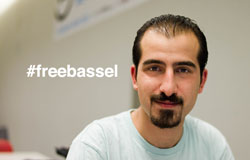IAmSyria.org releases Teachers Guide to Syria
vendredi 1 février 2013 à 21:14In December, we blogged about a new initiative by journalists called Syria Deeply, a news platform aiming to redesign the user experience of the Syrian conflict through news aggregation, interactive tools, original reporting, and feature stories. To encourage sharing and viral distribution, Syria Deeply licensed everything on its site under Creative Commons Attribution (CC BY).
Now “I Am Syria,” a project to increase education about Syria in the classroom, is working with Syria Deeply and President-elect Steve Armstrong of the National Council for Social Studies (NCSS) to build a lesson plan about the Syrian crisis. This lesson plan, along with other open educational resources for the classroom, is available at iamsyria.org under CC BY. It will be the first in a series of teaching materials on global events and humanitarian issues.
From the announcement,
Even the most off-the-shelf tech solutions can make a monumental impact in bringing more foreign policy education to our schools. Which is why we built our Creative Commons licensed open courseware on IamSyria.org as a portal to our teacher friendly lesson plan. You simply go to IamSyria.org to download a Teacher’s Guide, and you will have a full 40 minute lesson plan’s worth of Common Core friendly material to expand your student’s horizons about global affairs. Included on the website is an introductory background video for your students as well as supplemental materials for executing the lesson plan, including a PowerPoint with accompanying worksheet, a video on what other kids are doing, and a Presidential Cabinet exercise which has been focus-grouped and loved by students.
By CC licensing its resources, “I Am Syria” will encourage teachers everywhere to educate their students about events in Syria and why it impacts them. Teachers will also be able to adapt “I Am Syria” resources to their particular classroom needs, and even contribute to the resources’ improvement over time.









